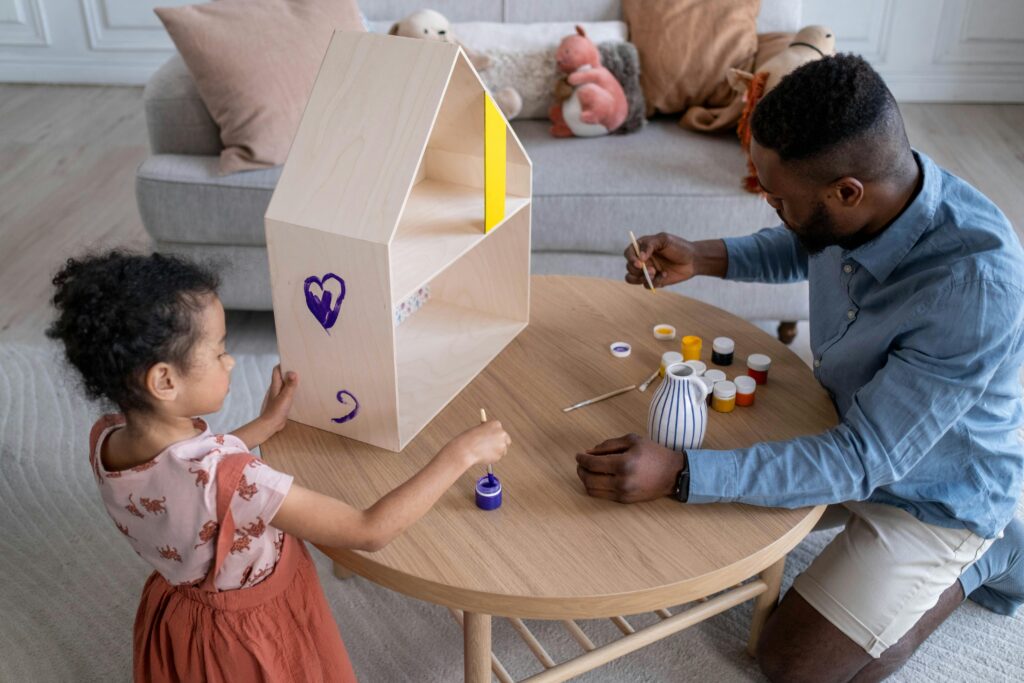In today’s competitive world, academic achievements, overshadow the well-rounded development of a child. Parents, educators, and society tend to grade a child’s potential using numbers: test scores, GPAs, and report cards. Success is narrowly defined within an environment where important aspects of character and abilities are overlooked in evaluating children.
Syed Zulqarnain Ashraf, who is founder of Noorain educational institute, has highlighted this issue while saying that what they need to consider is the way of judgment and valuation about children.
He said, “The way to test the ability of any child is that we look at his numbers, his report card, how many numbers did the school give, how many numbers he got in college, and how many numbers did he get in university. Okay, now this child is very good, and if his numbers are less, then this child is not correct. This disease is in the common people.
This is definitely not the way to test children. Rather, the way is that you see how moral this child is. See if this child has the ability to make a decision or not. Moreover, see if your child is also courageous or not. Does he get angry at small things? Or does he stand in front of courage? Does he get worried in difficulties? Or does he face difficulties as a courageous person? If these three abilities are present in your child, then your child is an excellent student.”
The Limitations of Grades
Grades and numbers are used as shorthand for calculating intelligence and capability. They serve a purpose in the assessment of academic progress, but they fail to capture the broader spectrum of what a child is capable of.
1. Grades Do Not Measure Real-Life Abilities:
Success in the real world is often depending on qualities such as flexibility, creativity, teamwork, and critical thinking—none of which can be measured by consistent tests, which means the knowledge does not merely depends on grading.
2. The Number Game:
Obsessive attention to grades can cause excessive stress and anxiety in children. It creates a fear of failure and discourages them from taking risks, exploring their passions, or thinking outside the box.
3. Other Talents Overlooked:
Children are good at different things: art, sports, communication, problem solving, and empathy. A grade-centric approach usually overlooks these talents, making children feel insufficient despite their unique strengths.
The Call for an Integrated Approach

According to Syed Zulqarnain Ashraf, the moral character, decision-making capability, and courage of a child are much more telling of their real potential. Assessing these qualities requires an integrated approach to parenting and education.
1. Moral Character:
A good life requires moral values. Honesty, kindness, empathy, and integrity help mold a child into an upright and respected citizen of the society.
The Prophet Muhammad (PBUH) once said, The most beloved of people to Allah are those who bring the most benefit to others.” (Sunan Al-Kubra)
Teach the children the value of being more moral than commendable; then they feel accomplished with a sense of fulfillment beyond moneymaking success.
2. Ability to make decisions:
Children with exceptional decision-making skills can overcome the test of time as they take appropriate decisions after taking the challenges, considering their consequences, and then acting effectively in decision-making. Encouraging independent thinking, allowing them to go through real situations, and providing room for them to make mistakes from which they learn, can support this ability.
3. Courage and Resilience:
Life is full of uncertainties, and a firm victory in those circumstances is given only through resilience. They faces life challenges and learns, with time, getting stronger again. The children learn to come out of their shells and be appreciated for their effort rather than the outcome, and it boosts their confidence and willpower.
How to Assess a Child Thoroughly

To fully understanding a child’s potential, we must move beyond report cards and look at the traits that make a child an all-around person.
1. Observe Their Behavior:
Pay attention to how your child interacts with others, handles conflicts, and responds to challenges. Are they concerned? Do they show stubbornness in difficult situations?
2. Encourage Self-Reflection:
Teach the children to reflect on their acts and decisions. Self-awareness enables them to know about their strengths and weaknesses.
3. Focus on Soft Skills:
The qualities that would help one achieve success in both personal and professional lives include communication, teamwork, and adaptability. Demonstration your child to as much development as possible by engaging him in-group activities, projects, and social interaction.
4. Reward Effort, Not Just Results:
Instead of applauding only good grades, praise your child’s efforts, creativity, and the effort he or she made to solve problems. This enforces the importance of learning and growth rather than simple achievement.
Role of Parents and Educators

Parents and teachers become the new definitions of success. Moving their focus away from grades and more toward character enables them to create an environment where children can thrive.
1. Set the Right Expectations:
Let the child know that excellence is being the best version of himself/herself, not beating someone else. Let the child know that it is okay to make mistakes; it’s a part of learning.
2. Emotional Support:
Give children a safe space to voice their fears, doubts, and failures. Be the anchor that gives them assurance and guidance without judgment.
3. Set an Example:
Model the qualities you want your child to develop. Show integrity, resilience, and compassion in your actions, and they will learn to emulate those. Stories of Holistic Success.
“There are many living and dead examples of people in the past and present society who gained success not because they earned good grades but on the basis of their character and patience”
1. The Ideal Mould: Prophet Muhammad (PBUH)
Prophet Muhammad PBUH is the essence of morality, wisdom, and bravery. His personality shows that actually success is to win other hearts. That one can stand firm before challenges and never quit the ethics.
2. Innovators in Modernity:
Many successful entrepreneurs and leaders were not head students during their school time, Steve Jobs and Elon Musk. Creativity and resilience in their working life motivated them to make what they have done.
Practical Steps for Parents

In order to encourage balance and a general view in how children are assessed, the practical steps parents can take include the following:
1. Encourage Lifelong Learning:
Educate your child that school is more than just books and tests. Encourage your child to explore different interests, from reading and art to science and technology.
2. Develop Emotional Intelligence:
Teach your child to recognize and understand his or her emotions. Teach your child empathy and make him or her understand others’ feelings and viewpoints.
3. Encourage Problem Solving:
Encourage your child to solve problems independently. Be it settling an argument between siblings or doing a school project, such situations develop decision-making abilities in your child.
4. Celebrate Failure as a Learning Opportunity:
Failure is a stepping-stone to growth. Narrate examples of successful people who experienced setbacks and how they used those experiences as lessons in life.
5. Balance Academics with Life Skills:
While academics are necessary, ensure your child learns other vital life skills: cooking, budgeting, and effective communication.
A society that values character
Redefining success is not only the individual’s responsibility but also that of schools, communities, and policymakers as they strive to value character development together with academics.
1. Redesign education systems:
Incorporate ethics, emotional intelligence, and leadership into school curriculums.
2. Recognize diverse achievements:
Celebrate children’s achievements in sports, arts, volunteer work, and other non-academic fields to broaden the definition of success.
3. Supportive Community:
Build venues where parents and educators share resources, experiences, and strategies in holistic child development.
Conclusion
Grades or numbers do not measure success. Rather, it is the quality of being moral, making good decisions, and having courage that defines a child’s potential. Focusing on these attributes can raise well-rounded individuals who do not only excel in academics but also in life.
As Syed Zulqarnain Ashraf said, That It’s time to look beyond the narrow lens of report cards and nurture confident, compassionate, and capable children who are equipped to face the challenges of the modern world. We prepare a future generation that looks at character over competition and growth over grades by doing so.









